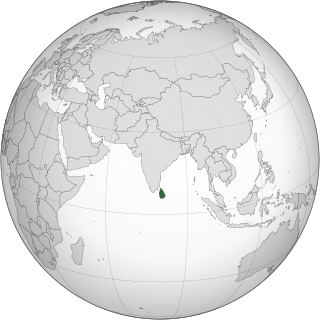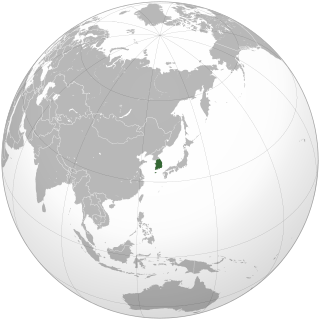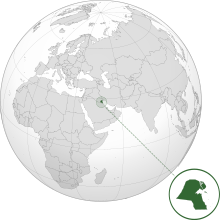
Drug liberalization is a drug policy process of decriminalizing, legalizing, or repealing laws that prohibit the production, possession, sale, or use of prohibited drugs. Variations of drug liberalization include drug legalization, drug relegalization, and drug decriminalization. Proponents of drug liberalization may favor a regulatory regime for the production, marketing, and distribution of some or all currently illegal drugs in a manner analogous to that for alcohol, caffeine and tobacco.

Drug policy of California refers to the policy on various classes and kinds of drugs in the U.S. state of California. Cannabis possession has been legalized with the Adult Use of Marijuana Act, passed in November 2016, with recreational sales starting January of the next year. With respect to many controlled substances, terms such as illegal and prohibited do not include their authorized possession or sale as laid out by applicable laws.

The use of cannabis in New Zealand is regulated by the Misuse of Drugs Act 1975, which makes unauthorised possession of any amount of cannabis a crime. Cannabis is the fourth-most widely used recreational drug in New Zealand, after caffeine, alcohol and tobacco, and the most widely used illicit drug. In 2001 a household survey revealed that 13.4% of New Zealanders aged 15–64 used cannabis. This ranked as the ninth-highest cannabis consumption level in the world.

Cannabis in Switzerland is illegal, though minor possession was decriminalised to a fine in 2012. Several cantons began to allow adults to cultivate and use cannabis in 2012, but this was struck down by federal courts. In 2016, four cities stated they were looking into establishing pilot cannabis clubs. The number of cannabis users in Switzerland is estimated to be around 500,000 among a population of 8 million.

Canada's drug regulations are measures of the Food and Drug Act and the Controlled Drugs and Substances Act. In relation to controlled and restricted drug products, the Controlled Drugs and Substances Act establishes eight schedules of drugs and new penalties for the possession, trafficking, exportation and production of controlled substances as defined by the Governor-in-Council. Drug policy of Canada has traditionally favoured punishment for the smallest of offences, but this convention was partially broken in 1996 with the passing of the Controlled Drugs and Substances Act.

Cannabis is a plant used in Australia for recreational, medicinal and industrial purposes. In 2019, 36% of Australians over the age of fourteen years had used cannabis in their lifetime and 11.6% had used cannabis in the last 12 months.

Cannabis in India has been known to be used at least as early as 2000 BCE. In Indian society, common terms for cannabis preparations include charas (resin), ganja (flower), and bhang, with Indian drinks such as bhang lassi and bhang thandai made from bhang being one of the most common legal uses.

Cannabis in Wisconsin is illegal for recreational use. Possession of any amount is punishable by up to 6 months in prison and a $1000 fine for a first offense. A second offense is punished as a felony with up to 3.5 years in prison and up to a $10,000 fine. At the local level, however, numerous municipalities and counties have decriminalized cannabis or lessened penalties for minor possession offenses. Medical use is legal only in the form of low-THC cannabis oil.

Cannabis in Kansas is fully illegal, and possession of even small amounts is a misdemeanor crime. Cannabis is only legal in Kansas in the form of THC free cannabidiol oil, also known as CBD.

Cannabis in New York has been legal for medical purposes under New York law since 2016, and recreational purposes since 2021. As of 2022, recreational cannabis is for sale legally in the state, only through state-approved dispensaries.

Cannabis is currently illegal in Singapore for recreational purposes. Possession or consumption can result in a maximum of 10 years in prison, with a possible fine of $20,000, as well as caning, under the Misuse of Drugs Act. Trafficking, import or export of more than 500 grams may result in the death penalty. Medical cannabis is also not permitted, with very limited exceptions for cannabidiol (CBD) pharmaceuticals.

Cannabis is illegal in Indonesia. Cannabis plants, all plants of the Cannabis genus and all parts of plants including seeds, fruit, straw, and processed cannabis plants or parts of cannabis plants including marijuana resin and hash are categorized as narcotics group. Drug offenders are subject to a minimum sentence of four years in prison if caught possessing it. Derivatives of medical and recreational cannabis are also illegal.
Cannabis in Latvia is illegal for recreational and medical purposes, but production of industrial hemp is permitted.
Cannabis in Malta is legal, within limits, to grow, use, and possess for adults. In 2018, the Parliament of Malta legalised medical cannabis. On 14 December 2021, the Parliament of Malta legalised recreational cannabis for personal possession and use for those aged 18-years-old and over, becoming the first EU country to do so.

Cannabis in Sri Lanka is legally sold through Ayurveda herbal shops, and can be used for medical and scientific purposes if given a license by the Ministry of Health. For recreational usage cannabis is not legal. However, cannabis plays a major role in the traditional culture of the island, with the specific Sinhalese or Sanskrit names virapati (“hero-leaved”), capta (“light-hearted”), ananda (“bliss”), trilok kamaya and harshini indicating its various properties, such as inducing euphoria and heightening sexual energy.

Cannabis is illegal in Russia. Possession of up to 6 grams is an administrative offense, punishable by a fine or detention of 15 days. Possession of larger amounts is a criminal offense.
The list includes and details significant events that occurred in the global history of national-level implementations of, or changes made to, laws surrounding the use, sale, or production of the psychoactive drug cannabis.

Cannabis in South Korea is illegal for recreational use. In November 2018, the country's Narcotics Control Act was amended and use of medical cannabis became legal, making South Korea the first country in East Asia to legalize medical cannabis.

The Cannabis Act (C-45) of June, 2018 paved the way for the legalization of cannabis in Canada on 17 October 2018. Police and prosecution services in all Canadian jurisdictions are currently capable of pursuing criminal charges for cannabis marketing without a licence issued by Health Canada. The Supreme Court of Canada has held that the federal Parliament has the power to criminalize the possession of cannabis and that doing so does not infringe upon the Canadian Charter of Rights and Freedoms. The Ontario Court of Appeal and the Superior Court of Ontario have, however, held that the absence of a statutory provision for medical marijuana is unconstitutional, and to that extent the federal law is of no force and/or effect if a prescription is obtained. The recreational use of cannabis has been legalized by the federal government, and took effect on 17 October 2018.

Cannabis in Brunei is illegal and can be punishable by caning or the death penalty. Brunei Darussalam's legislation is controlled by its sultan and is based on the country's Sharia-Islamic beliefs. In accordance with these laws, Brunei native, Lam Ming Hwa, received the death sentence in 2004 and a Malaysian native, Muhammad Mustaqim Mustofa bin Abdullah, was sentenced to death in 2017.












